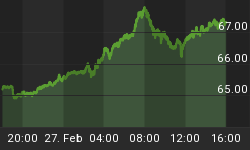This coming Sunday Greece will hold its referendum. The question to be asked is not, as the foreign press initially reported it, about leaving the euro. It is about accepting or rejecting the troika's bail-out terms.
The Greek government's finance minister is making this distinction clear to voters in the few days remaining. As if to ram the point home, Greece was reported earlier this week to be considering taking out an injunction at the European Court of Justice to block attempts to expel Greece from the euro on the grounds that there is no mechanism to do so. Well, there is in the Lisbon Treaty, but it needs Greece's approval, which amounts to the same thing. Indeed, in a blog written over a year ago the then economist Yanis Varoufakis wrote, "In short, the answer to a German 'Go jump' can be 'We shall not jump but we shall stay rock solid within the Eurozone and behind our demand for a debt conference. Just watch us'". Now that he is finance minister he is ensuring his prediction will come to pass.
Behind the press reports there is also a common, dangerous assumption; and that is Greece would be better off out of the euro with its own currency, which it can devalue at will. This is not what Varoufakis seeks. He is not naïve enough to think that a new drachma is a panacea. The truth is simpler: Greece is drowning in debt and needs to negotiate at least a partial default, a point Varoufakis has made time and time again.
Unfortunately, in the minds of the Eurozone establishment, for which read Germany as the main creditor-nation, a negotiated default cannot be permitted: it's the red line. Give in to Greece and you have Portugal, Italy and perhaps Spain and eventually France demanding the same forgiveness. The Eurozone's banks, while reasonably free of Greek debt, are loaded up with sovereign debt issued by these nations and cannot take haircuts on it without going under. It would not only undermine the Eurozone, but it could trigger a global financial crisis as well.
Furthermore the Greek government's own spending is exceptionally high, and from a creditor's point of view should be addressed. This is behind the troika's emphasis on radical pension reform, already rejected by this far-left government. But there comes a time when even the most lenient creditor has to bite the bullet and face reality, and that is what Germany is now being forced to do.
Of course this is a black-or-white argument, and reality is usually shades of grey. Normally politicians seek compromises so the press is naturally prone to believing that negotiations could be restarted at any time. However, Germany's continuing insistence that the law will prevail means Varoufakis's point will be addressed, if not through debt compromise, through the full pain of the financial rug being pulled. It really would be the end of the paved-with-debt road for Greece.
Paradoxically the worst outcome for everyone, creditors included, would be for the electorate to accept the troika's terms by voting 'Yes' in the referendum. If this happens Greece's debt problem will only be deferred, but not for long. The diversion of economic resources to pay debt-interest tightens the screw on the Greek economy, because the burden of debt escalates as GDP contracts, hastening economic collapse instead of deferring it. The troika, as instrument for this financial torture would naturally be judged by Greece's people to be motivated by hard reparations, just as France was with Germany in the wake of the Versailles Treaty of 1919. Follow this route and the life of the Eurozone may be extended for a year or so, but the political consequences could hasten its destruction. Germany's red line is very thin indeed.
Instead, a 'No' vote should be an opportunity in the absence of a post-referendum agreement for Greece to scrub all its international debt and start again. It will get no substantive financial help from the EU or financial markets, so the government would be forced to address bloated government spending itself without resorting to money-printing. At least Greece's electorate will bear full responsibility for its own future.
It was easy to deride Varoufakis as the game-theorist turned finance minister wholly out of his depth negotiating with his hard-nosed opposite numbers in the Eurozone. History may judge him instead to have played a poor hand very well indeed.
Disclaimer: The views and opinions expressed in the article are those of the author and do not necessarily reflect those of GoldMoney, unless expressly stated. Please note that neither GoldMoney nor any of its representatives provide financial, legal, tax, investment or other advice. Such advice should be sought form an independent regulated person or body who is suitably qualified to do so. Any information provided in this article is provided solely as general market commentary and does not constitute advice. GoldMoney will not accept liability for any loss or damage, which may arise directly or indirectly from your use of or reliance on such information.















